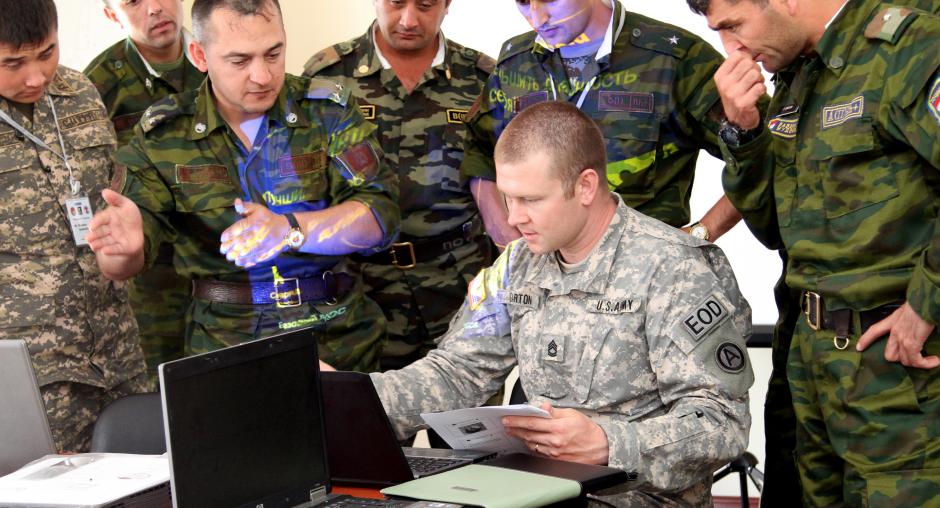First explosive ordnance disposal course in Central Asia completed with OSCE support

DUSHANBE, 6 June 2014 – A ten-day regional Explosive Ordnance Disposal (EOD) course facilitated by the OSCE Office in Tajikistan concluded in Dushanbe today.
The course was hosted by Tajikstan’s Defence Ministry and facilitated by the OSCE Office in Tajikistan in partnership with the U.S. Central Command, and supported by the Office for Military Co-operation of the U.S. Embassy in Dushanbe.
Eighteen students from Kazakhstan, Kyrgyzstan, Tajikistan and Turkmenistan attended the training course, the first of its kind in Central Asia. It marks the beginning of a comprehensive train-the-trainer programme in accordance with international standards on mine action to be implemented at a later stage. The training programme will benefit four states in the region which will receive certified EOD trainers, training curricula and materials that will enable them to disseminate the information further.
“Not only does technical co-operation result in closer interaction and dialogue on common concerns relates to explosive hazards, but is also complements confidence- and security-building processes in Central Asia,” said Hans Peter Larsen, Deputy Head of the OSCE Office in Tajikistan.
Muhabbat Ibrohimzoda, Director of Tajikistan National Mine Action Centre, said: “The Tajikistan National Mine Action Centre welcomes such regional training programmes that will allow us to certify successful training candidates in accordance with the international standards.”
Lieutenant-Colonel Benjamin Lipari, Training Supervisor from Army Central Command of United States of America said: “The only way to address concerns and challenges of explosive hazards in Central Asia is through developing proficient national capacities.” He added that the training courses will contribute to raising the professional level of EOD services in Central Asia.
Since 2009, the OSCE has been supporting the development of co-operative mechanisms on a technical level among states in Central Asia and Afghanistan to address concerns and challenges stemming from explosive hazards.
